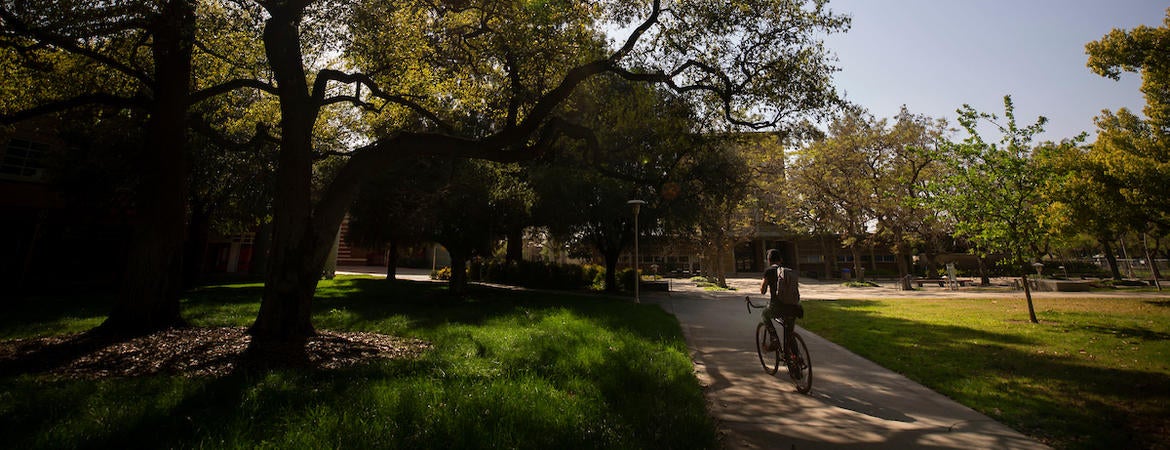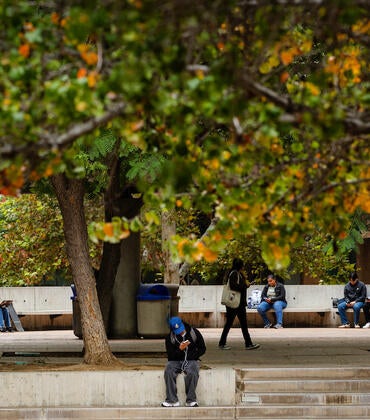UC Riverside offered more programs promoting sustainability while seeing a major decrease in greenhouse gas emissions last year, according to the 2021 Sustainability Annual Report.
The report, released in January, outlined several steps the campus has taken to reduce its carbon footprint ranging from new programs to reduced gas and electric use.
In 2021, the campus received a gold rating from the Advancement of Sustainability in Higher Education’s Sustainability, Tracking, Assessment & Rating System, or AASHE - STARS, an index of the nation’s most sustainable colleges and universities.
Remote instruction due to the pandemic had a major impact on greenhouse gas emissions, which were down 28% in 2020, a savings equivalent to 5,597 passenger vehicles driven for one year. Commute and flight emissions saw a combined drop of 87% due to remote work and travel restrictions.
Other factors were a decline in electricity use of 9% and natural gas use of 8% while the campus had a cleaner supply of electricity from provider Riverside Public Utilities, the report stated.
Total waste generation decreased 43% while potable water use was down about 3%. Water landscaping needs remained high due to higher than usual temperatures.
UCR continued to promote sustainability through programs such as the Bending the Curve course tackling major climate change issues available to graduate and undergraduate students as well as the public through UC Extension. More than 70 students enrolled in the course in 2021.
Students also became engaged in local climate issues through the Climate Action Leadership Series, a partnership between the Office of Sustainability and Student Life.
Several major new construction projects were completed on campus, resulting in nine projects with LEED certification. LEED stands for Leadership in Energy and Environmental Design, a certification developed by the U.S. Green Building Council for energy-efficient buildings.
Read the full report here.




